
The University of Zielona Góra is the leader of the SoMoveED project. The university was founded on the basis of the Parliamentary Law of June 07th, 2001. A tradition of the school is longer since it was founded through a merger of the Technical University (established in 1965) and the Pedagogical University (established in 1971). This is the biggest state institution of higher education in the Lubuskie Province. the University offers undergraduate, postgraduate and doctoral courses to 9685 of intramural and extramural students. The University comprises a wide spectrum of faculties ranging from arts, humanities or social science, through biology and health science, to exact sciences or technology and engineering. The University consists of 13 faculties and is entitled to confer post-doctoral degrees in five areas and doctoral degrees in 19 areas. The University of Zielona Góra cooperates with public institutions and business. An important part of the mission of the University of Zielona Góra is to equalize the opportunities for the development of the region and its inhabitants and to increase the intellectual, economic and artistic potential by educating well-qualified staff and conducting advanced research. The task of the University is to prepare highly qualified employees demanded by the region, Poland and the European Union. Internationalization is a very important part of the University staff activities.
https://www.uz.zgora.pl/index.php?en
The University of Madeira (UMa) is a Portuguese public university, created in 1988 in Funchal, Madeira. It welcomes over 3,000 students and nearly 400 staff members and is composed of the:
- Faculty of Arts and Humanities
- Faculty of Exact Sciences and Engineering
- Faculty of Social Sciences
- Faculty of Life Sciences
- School of Health Sciences
- School of Technology and Management
UMa offers high-quality education and its educational offer is designed considering the intended educational objectives whilst seeking a balance between core training, cross-sectional skills, and knowledge in specific subject areas. This encompasses non-graded higher education short courses, undergraduate degrees (1st Cycle of Studies), and postgraduate degrees (2nd and 3rd Cycle of Studies) in addition to non-awarding degree postgraduate programs. It also develops teaching and research policy that takes into account the specificities of the Madeira Region in which is located, collaborating in the formulation of national and regional policies on education, science, and culture, and giving its support on legislative projects concerning these subjects. UMa is also an essential element for the deepening of the internationalization of the Region and in the cultural development and projection of the Region. Its scientific research prioritizes a rigorous and permanent expansion of the boundaries of knowledge, based on the establishment and development of projects, groups, lines, and research centers.
https://www.uma.pt/en/
Gaziantep University’s beginnings can be traced back to 1973 when the campus was established as an extension campus of the Middle East Technical University at Ankara. In 1987, the campus was promoted to a university in its own right with the addition of Medical School and the Faculty of Arts and Sciences. With a vibrant community of STEM research the college is also proud to be a member of Gaziantep with its sound social sciences education.
Gaziantep University is a partner to the Erasmus Charter for Higher Education (ERAPLUS-ECHE) and is oriented towards training a diversity of students from all around the world.
The city of Gaziantep is the largest commercial and industrial center in the southeastern Turkey. The metropolitan Gaziantep boasts of a population of almost 2,5 million including the highly successful integration of immigrants from war-torn Syria, numbering around half a million. Gaziantep is an industrial powerhouse with exports to around 80 countries in the world with a 10 billion USD in exports contributing to about one tenth of the Turkish worldwide exports.
The student body at Gaziantep University has more than 25.000 undergraduates, 20.000 associate degree level enrollees on top of 5.000 graduate students. The campus is also home to 5.000 students from approximately 100 different countries from all over the world. The university is a public higher education institution with more than 80 degree granting programs.
https://www.gantep.edu.tr/
Association for promotion of IT, culture and coexistence (IKS) was established in 2003 in a post-war community in Central Croatia close to our capital city Zagreb and also the border with Bosnia & Herzegovina. The vision of our organisation is to encourage a humane, democratic environment in which we act as a generator of changes and a stronghold of positive ideas. Through supporting civic activism and volunteer work, we empower citizens to take responsibility for community development. Our many and varied projects on local, regional, national and international levels include non-formal education and training activities, strategic planning and capacity building, exchange of best practice methods, with partners from the public, non-profit community and private sectors.
We are members of many networks both national and international, lobbying for human rights, civic education, youthwork, capacity development of institutions and community services organisations, employment within the civil society sector and youth mobility as a tool for personal and professional development. We also work with children in the community and many schools, using practical, interactive and participatory experiential education methods.
In addition to Association IKS’ staff members, we have international interns and volunteers on our team, working on individual projects in the community.
https://udrugaiks.hr/
The University of Bordeaux (UBx) is a comprehensive, research-intensive university and one of the first French universities to be awarded an Initiative of Excellence label by the French government. It offers 250 Master programs, 150 Bachelor programs, more than 50 national diplomas in Health and 50 PhD majors for a total of 56,000 students (incl. PhDs) and nearly 6,000 staff members. The Institute of Education (INSPE) is a component of the University of Bordeaux which works in collaboration with the Universities of the Bordeaux Academy and the Rectorate of the Bordeaux Academy, Directorate of National Education Services, schools, colleges, high schools. INSPE’s mission is to organise and ensure training in collaboration with the universities of Aquitaine and the school institution for students destined for the professions of a school teacher, college and high school teacher and senior advisor Education – to train students or education staff who wish to specialize in Training engineering trades; – to organise actions for the continuous training of 1st and 2nd-degree staff and education staff; – to participate in the initial training and continues to teach researchers and higher education teachers; – to drive training activities for other training and education occupations; – to participate in the Disciplinary and pedagogical research; – to participate in international cooperation actions. Some figures: – 5 training sites spread over the Bordeaux Academy; – 1 master MEEF with 4 mentions; – 178 teachers including 60 teacher-researchers; – 146 staff Administrative – 2,300 students. On the one hand, it mobilizes research results for the purpose of transferring training and field practices and, on the other hand, from identifying needs places of practice, stimulates and supports the development of multidisciplinary projects in order to develop new, transposable knowledge.
https://www.u-bordeaux.com/
Tekirdağ Namık Kemal University is a public university offering associate, bachelor’s, master’s and doctoral degrees in a wide variety of programs including but not limited to agriculture, engineering, dentistry, medicine and health sciences, natural and applied sciences, social sciences, economics and administrative sciences, foreign languages and literature, theology, sport education, fine arts and architecture. Currently, it has about 36.150 national and 690 international students with 1500 academic and administrative staff.
Founded in 2006, Tekirdağ Namık Kemal University can be regarded as a relatively young institution though its history dates back to 1982 when Faculty of Agriculture was established. Recently, 10 faculties, 3 undergraduate schools, 11 vocational schools, 3 graduate schools, a music conservatory and 11 research and implementation centres are affiliated to the university. Internationally, the university has Erasmus Plus agreements with 116 institutions in Europe and 48 cooperation agreements with research institutions in 23 countries worldwide.
The province of Tekirdağ, where the university is situated, is a crossroad-zone for agriculture, industry, tourism and commerce.
Due to its location close to Istanbul and EU borders, the university gets easily involved in small and medium-scale research projects funded by national and international grant schemes. Some of the international funds benefited by TNKU researchers are Black Sea Basin Cross Border JOP, FP7, Horizon 2020 (MCSA, ERA-NET), Europe Aid, COST, COSME, Erasmus+ Strategic Partnerships in Higher and School Education, Erasmus+ Capacity Building for Sports.
http://www.nku.edu.tr/en
The Local Initiative Association „Roman 2002” was founded in 2002 and it is active in the education field. The association works in the North-East region of Romania. The mission of the association is to support vulnerable groups by cultivating individuals’ responsibility toward society and helping them acknowledge society’s responsibility towards each individual. Our mission is coordinated through development, participation and prevention. AIL Roman 2002 is a member of the County Partnership for Employment and Social Inclusion, a structure that aims to participate in the implementation of public policies on employment and social inclusion and in the decision-making process in local, regional and national level.
The main activities of the association are: developing young people’s skills in organizing actions with impact on the community; organizing courses in the following areas: career orientation, entrepreneurial skills development, traditional art, sculpture, painting and photography; informing young people with fewer opportunities about the values of the European Union and the opportunities they have to communicate with the institutions of the European Union. According to the constitutive documents, the target groups of the association are youth, NEETs, single parent’s families and minorities. Since 2002 the organization implemented 16 projects focused on increasing the level of education and improving access to employment for vulnerable groups from Roman town. The projects were implemented in partnerships with the public authorities, local nongovernmental organizations and also by the organization itself. The main donors of the organization are Structural European Funds, Private donors and Public Authorities. Until 2017, the association has implemented projects only at the local and regional level.
https://www.facebook.com/Asociatiaroman2002
Both Social is a specialist in the training of online tools. These pieces of training are for NG{O, schools and organizations. Together with the University of Twente and Saxion University of Applied Science, we do a lot of research on the use of social media in business. We created the social media strategy canvas We use this to help organizations ‘Questions that are important in drafting a strategy are questions regarding budgets and capabilities, both internally and externally. But also how to determine whether the strategy works and is successful. Measuring remains to know. For a social media strategy, the capabilities and competences of employees are to contribute to social media activities and the budgets for, for example, advertising and enabling partners. Also, any guidelines or policies are important. And of course, the tools to measure the results of the activities. The word strategy is derived from antiquity. It is a merger of the Greek terms 'stratos’, which means army and means 'agein’, which leads or leads. The former definition of strategy is, therefore, 'smart deployment of the army to win the war’. Nowadays, it means in short: a plan to achieve your goal.’ We work with corporate, SME and non-profit organizations. Both Social has experience in the field of youth education and social media. We implemented in multiple schools on primary, secondary and university level online media guidelines. Also, we implemented different blended learning strategies for schools to deal with different kinds of social and educational challenges. Both Social is a certificated training centre which gives pieces of training on digital tools, e-educational tools, smart cities, active citizenship and digital entrepreneurship.
Home
Charles University (CUNI) as such ranks among the top 2% universities in the world. It has seventeen faculties and four University Institutes (Institute of the History and Archive of Charles University, Center for Theoretical Study, Center for Economic Research and Graduate Education, Environment Center).
The Faculty of Arts is currently one of the largest and most important research and educational institutions in the arts and humanities in Central Europe. The Faculty was founded in 1348 by the Czech king and later Holy Roman Emperor Charles IV who established it as one of the four faculties of the Prague university, later named after him Charles University – the oldest university in Central Europe. Ever since it has been the intellectual centre of the Czech lands: With close to 1,000 staff members, over 9,000 students and a growing international student population of almost 1,000 students from all over the world, the Faculty of Arts is a vibrant and diverse academic environment. The Faculty attracts the most talented students from the Czech Republic and the number of applications for BA, MA and PhD programmes amounts to 10,000 every year. The remarkably wide range of disciplines at the Faculty of Arts includes philosophy and religious studies; history and archaeology; psychology; education; sociology and political science; theatre, film and music studies and a number of philological programmes which combine a rigorous study of a given language and courses in the associated literary, historical and cultural background.
https://cuni.cz/UKEN-1.html
University of Modena and Reggio Emilia (UNIMORE) has been founded in Italy in 1176. Since 2007 it has been classified among the first Italian Universities for teaching quality, research and projects in conjunction with enterprises, according to the most recent assessment of the Italian Ministerial Committee for the Evaluation of Research. UNIMORE is also part of The Digital District, a strategic project promoted by Unindustria and involving public and private players with three main implementation guidelines: territory, innovation, education.
UNIMORE currently offers 81 bachelor and master classes, and 14 PhD courses in its 14 departments; the number of students enrolled last academic year was around 25.000.
The Department of Communication and Economics has been working for several years in the field of media analysis (both visual and digital) accompanied by a study of socio-cultural phenomena, as well as in the field of analysis of visual and performing arts, cinema and archive studies, game studies, design of social communication (regarding immigrant citizens, risk situations and social exclusion), analysis of urban spaces in relation to mobile technologies (through the design of maps and qualitative analysis with the use of ethnographic and socio-semiotic field observation methodologies). The Department also includes a laboratory that deals with the experimentation of innovative forms of video production and the promotion of research in the field of media history and techniques.
https://international.unimore.it/
The University of Central Lancashire (UCLan) in Preston is an international, multi-campus university. We gained university status in 1992, but our origins date back almost 200 years. The spirit of opportunity for all, which inspired us then, remains at the heart of our mission today. We inspire people to achieve their potential, seize opportunities and achieve things they never thought possible.
As one of the UK’s largest universities, with staff and student community approaching 40,000, we are a truly international university, with 2,000+ students from 100+ countries and global 200,000- strong alumni network.
UCLan is growing its focus on impactful research from science to the Arts. Academics carrying out fundamental research work alongside our thriving practice-based community, from health to artists, musicians and writers.
Many of our researchers are world-leading experts whose work is transforming lives globally. As a civic, anchor institution, we are proud of our place at the heart of the local and regional economy and are a Northern Powerhouse Partner. Lancashire is one of the most economically challenged counties in the UK and the University is a significant driver of economic, cultural and social development in Preston, Lancashire, Cumbria and the North West.
Our researchers are passionate about involving diverse communities in research, with a long history in Public Engagement (PE) going back to the 1800s. We hold the NCCPE Silver Watermark for Public Engagement. Our award-winning Lancashire Science Festival, running annually since 2011, attracts over 12,000 visitors per year.
Our activity is structured across five Faculties (1.Science and Technology; 2. Clinical and Biomedical Sciences; 3. Health and Wellbeing; 4. Culture and Creative Industries; 5.Lancashire School of Business and Enterprise) and 15 Schools, bringing together academics across disciplines and practice-based specialisms.
https://www.uclan.ac.uk/
Polish team
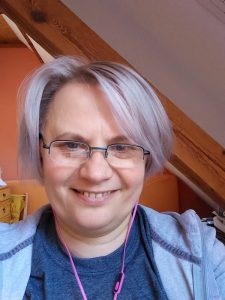
Dorota Bazuń – is a sociologist and an experienced teacher. She likes to learn new things and share her experience and knowledge with the students. Research interests of Dorota are as follows: sociology of social movements (which resulted in the dissertation concerning Polish anti-drug movement – MONAR); social space – cultural and social processes of adapting new space (processes of adapting new cultural and physical space among inhabitants of recovered territories); social economy; social dimension of transborder cooperation. She loves dogs also because you need to be active and walk a lot to make them happy. She loves cats, too, due to their impressive independence.
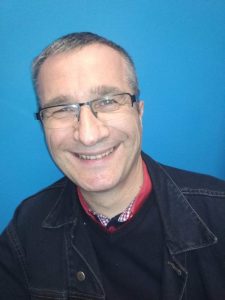
Mariusz Kwiatkowski – as a social researcher, he strives to combine research activity with public engagement harmoniously. For many years he has been involved in implementing projects aimed at learning about the mechanisms of social change and implementing the expected changes. Social theories that shape his imagination and inspire research are new institutionalism, the concept of social capital, concepts of social cohesion and solidarity, and sociological theories of space. These theories support his research in the social economy, revitalization, and recently social housing with the most excluded people in mind.
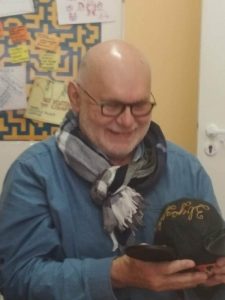
Zbigniew Adaszyński – graduated in English philology and had the opportunity to practice the language in many very different professional activities. He is distinguished by the fact that he likes to teach others and shares his knowledge with great pleasure. He is known for his keen sense of humour and love of sarcasm. But his students know that he is so dedicated to the work that he can write dozens of letters to students. It is also famous for its extremely innovative approach to classes. He focuses on the autonomy of students and usually turns out to be right in trusting them.
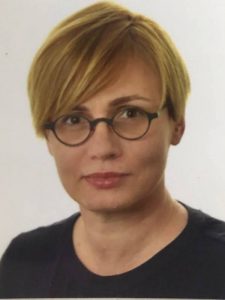
Anna Bazan-Krzywoszańska is a town planner, researcher, and lecturer at the University of Zielona Góra. She specializes in supporting decision-making processes in spatial planning using artificial intelligence. She is also interested in sustainable development, including energy efficiency and urban spatial policy.
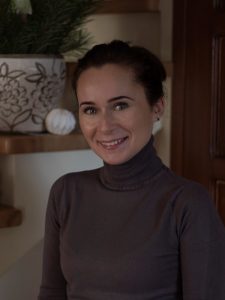
Joanna Frątczak-Mueller – a sociologist, she is particularly interested in social policy, active citizenship and cooperation networks. She researches quality of life and strategic programming and supports local governments in implementing their strategic planning tasks. She likes water sports, growing plants and meeting people. Travelling is her greatest passion.
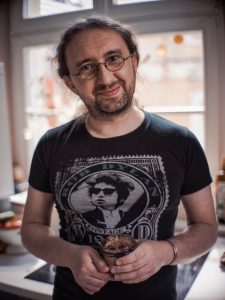
Artur Kinal – Works as an assistant professor at The University of Zielona Góra. Research areas of interest: urban sociology, visual sociology, sound as a data source in social sciences.
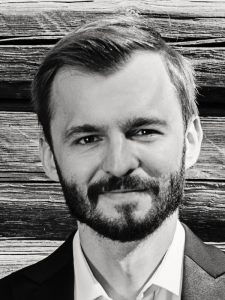
Tomasz Kołodziej, (Ph.D.), Assistant Professor at the Faculty of Sociology, University of Zielona Góra. He obtained a PhD in social sciences in sociology in 2018. Research interests: eSport, sociology of politics, the role of the police in society, methodology and statistical methods in social sciences. As part of SoMovED, he takes up the subject of m-learning and gamification. Privately, a fan of Rock, Guy Ritchie, new technologies and classical (paper) books.
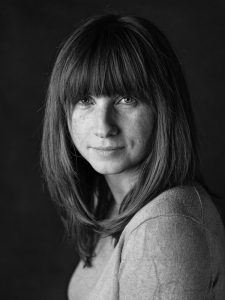
Anna Mielczarek-Żejmo deals with social dialogue and participation and the importance of intersectoral cooperation and social networks for the life of local communities. In cooperation with students, her most important thing is to discover how to introduce positive changes in her environment. Cooperation with non-governmental organizations is a source of inspiration for her.
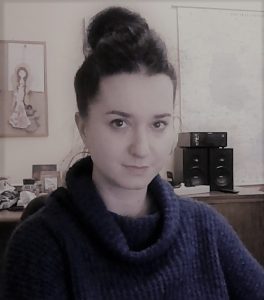
Justyna Nyćkowiak is a sociologist and political scientist. She searches for answers to questions about the reasons for human behaviour and choices in the data. It works well in sentences where social life is to be told with the help of numbers and pictures. She found a way to connect these two worlds by addressing gamification and the social dimensions of esports activity.
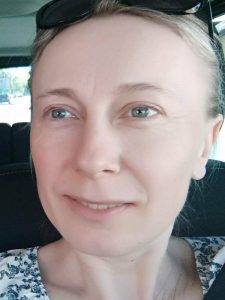
Magdalena Pokrzyńska – is an ethnologist and sociologist. Her scientific interests are associated with the issues of borderland, identity, social memory, heritage and traditionalism, and broadly understood folk culture. She is the author of over 60 scientific and popular science publications. Magdalena loves nature and traditional agriculture she runs an apiary, she is passionate about early music and Central European folklore and handcraft.
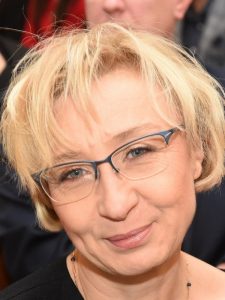
Marta Skiba – architect and landscape architect, author and co-author of over 120 scientific publications. Scope of research interests: communication and its variants, participatory mapping – methods and techniques combining cartography with social research methods, data-based modeling. As an academic teacher with many years of experience, he encourages architecture students to combine social data with their knowledge of architecture.
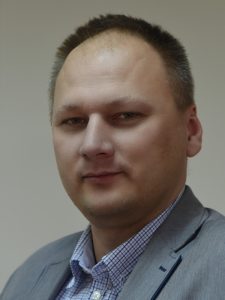
Jarosław Wagner is fascinated by new media and computers. Jarosław specializes in pedagogy and media education. His scientific interests focus on the issues and the impact of information technologies on the education process, its pedagogical impact and distance learning issues. Jarek’s fields of interest are pedagogue, computer science and economy. Yes, yes, he is also an economist by education. He is a technical school computer science teacher. He is a distance learning methodologist and administrator of the university’s educational platform Moodle.